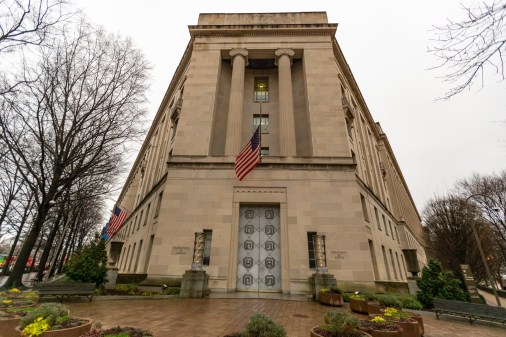Russian spammer and hacker Peter Levashov extradited to United States
A yearlong battle over the fate of one of the world’s most prolific spammers ended Friday when Spain extradited Russian hacker Peter Levashov to the United States.
Levashov, who was arrested while on vacation in April 2017, is accused of being behind a massive botnet that pumped out a torrent of spam emails for profit. He’s charged with fraud and unauthorized interception of electronic communications.
Spain’s National Police handed Levashov to U.S. Marshals on Friday. The counter-extradition request from Russia was rejected.
The U.S. and Russia have spent the last year battling over his extradition. Russian authorities have accused the U.S. of “hunting” and “kidnapping” Russian citizens, while Levashov’s lawyers say the “political” debate between Russia and the U.S. is tainting the case. But U.S. law enforcement’s longstanding strategy to extradite accused cybercriminals dates back to the George W. Bush administration.
American officials have claimed that U.S. efforts to arrest Levashov in Russia were rebuffed by Moscow and that he was protected by the government despite alleged criminal activity.
Russia has a long history of cooperation with the cybercriminal underground. Signs point to repeated government protection of high-profile hackers who appear to be working, in one respect or another, on Moscow’s behalf. In Russia, it can become impossible to disentangle the criminal and espionage worlds. The American strategy has shifted decisively to arresting suspects whenever they leave Moscow’s direct legal protection.
Another suspected Russian hacker, Alexander Vinnik, faces extradition to the U.S. Vinnik pleaded not guilty to charges that he ran the cryptocurrency exchange BTC-e and engaged in money laundering at the scale of $4 billion. He was arrested in Greece last year.
Addtionally, Stanislav Lisov was arrested in Barcelona last year and stands accused of developing the NeverQuest banking malware. Yury Martyshev was arrested in Latvia in April and is charged with running a hacking marketplace. Yevgeniy Nikulin was arrested in Prague and stands accused of hacking LinkedIn and other American internet companies.
Russia’s Foreign Ministry issued a travel warning on Thursday recommending its citizens not leave the country because the U.S. was searching for Russians to arrest.
“Considering these circumstances, we strongly insist that Russian citizens carefully weigh up all the risks when planning trips abroad,” the Foreign Ministry stated.






